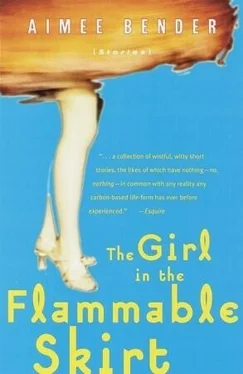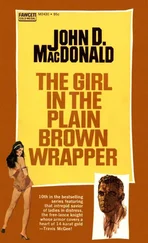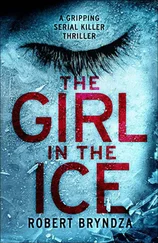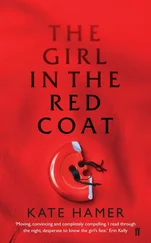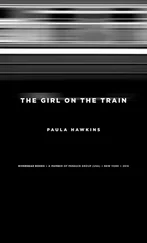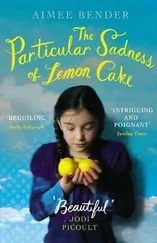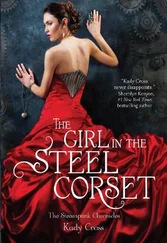6.
Same ugly man.
7. Back at Haggie and Mona’s
At one in the morning, a key turned in the lock and Mona tiptoed into the living room. She could see the shape of the woman still there, lungs lifting and releasing. She felt a surge of pride that the runaway was alive and had stayed, and eased herself down on the couch across from the woman and unlaced her boots.
It had been a great date. He’d been one of those men who kissed hard, trying to merge their faces. Hand at the back of her head. It was quite urgent kissing for a first date but she liked that. She left the boots by the couch, tiptoed into the bathroom and flipped on the light and there was Haggie lying on the floor, legs tucked into his chest.
“Haggie,” she said, stopping still, “what’s going on?”
He craned his head and looked up at her with enormous eyes.
“I committed suicide,” he said. “But it didn’t work.”
“What?” Mona squatted on the floor.
“I mean,” he said, “I just wanted to sleep and sleep, sleep and sleep, so I took nine pills, nine dangerous white pills, those pills you use to sleep sometimes? I took them hours ago. Hours and hours ago. Nine of them. I’m sure of it. And I feel fine.”
She stared at him. “Did you puke?”
“No,” he said, “I didn’t even puke.”
“Haggie,” she said, “are you okay?” She reached forward and felt his forehead. “You’re not feverish,” she said. She sat down next to him. “Are you okay?”
“I think so,” he said.
She stared at him still. He stared back. Standing up, Mona pulled the bottle down from the medicine cabinet and read the label. She looked down at him and shook her head. “Nine?” she asked, and he nodded. She kept shaking her head, placing the bottle back on the shelf and closing the door. Then she squatted down next to him again and touched his hair. Her voice was quiet. “I’m worried about you,” she said.
“I know.” He reached up an arm to grasp the counter. “Me too.” He pulled himself up. “But still, it’s all so strange.”
Mona grasped his elbow. “Do you need help walking?”
“No.” He shook his head. “That’s the thing. I don’t.”
He walked into the living room and stood against the back of the stiff sofa, facing the big window that looked out onto their small backyard. Mona followed him in.
“She’s still here,” she whispered, pointing.
“Did you have a good date?” Haggie looked at the woman sleeping. Her entire face was relaxed. He thought she looked beautiful.
“Yeah,” she said, “it was really nice. He liked the boots.” Haggie smiled. “Are you going to sleep?”
“I guess not yet,” he said, “I’m feeling pretty awake right now. I think I’ll just stay in here.”
“Okay.” She touched his shoulder. “You’re sure you’re okay?”
He nodded. “I’m good,” he said. “Good night, Mone. Sleep well.”
Mona picked up her boots and pattered into her bedroom. The woman shifted in the chair. Haggie went over to her and gently rolled the chair forward until they both were in front of the window. He looked at their reflections silhouetted in the glass. She still smelled like smoke and it smelled good. He remembered Mona: what if she poisons you? and smiled. He sat on the arm of the couch and watched their undetailed shapes in the glass. Once Mona went to the bathroom. Other than that, it was perfectly still. After several hours, sunlight began to seep into the backyard, slowly opening out the flatness of the glass and revealing the grass and one tree. A dew-covered white plastic chair. An empty wooden bird feeder. He watched as their silhouettes faded from the window and dissipated into the morning.
8.
He started to cry, same ugly man, always: that tidal wave of disappointment. Transformation impossible. He pulled the itchy fake gold necklace off and threw it at the glass where it made an unsatisfying clink; he let out a small, ineffective spit which didn’t land on the mirror at all but instead arced down and splatted onto the fancy silver frame. The muttering man started to rub the spit into the frame, but as he did, the saliva seemed to remove a bit of the silver. “What?” he said out loud. He leaned forward. He rubbed more. Silver paint lifted off, thin and papery. Beneath it was scarred wood. The muttering man licked his finger and rubbed again. The paint continued to peel off. Darkened silver, iridescent black, collected under his fingernails, on the tops of his fingertips. Ignoring his face, he hunched down and kept rubbing. What do you know, he said, mutter mutter, well who would’ve thought it was a fake frame too. He rubbed the entire frame until his hands were black and it was no longer silver at all, but just a rectangle of flawed bumpy brown wood.
Turning the mirror around, he opened up the hooks and removed the glass from the back. Then he hung the frame around his neck. “Will you look at my new necklace,” he said out loud, to the empty street. “This one doesn’t itch at all.”
9. Mine
I sit with the bush for a long time but it says nothing to me. It continues to burn, still mainly near the bottom. I listen harder and harder, feeling a certain despair build, wondering if it will ever reach out and talk, if ever I will understand the message meant for me, but then, just as I’m listening as hard as I possibly can, it hits me, pow, like that: of course. It is saying nothing. It’s a listening bush. It wants me to talk. My burning bush would be different, my burning bush would be like me.
So I clear my throat and I tell it things, I talk to that bush. I don’t think I’ve ever said so many sentences in a row before, but I talk for at least an hour about myself — about me and my husband and my mother and my allergies, and sometimes I don’t know what to say and then I just describe what I see. The street is gray and paved. The ground is dry here. The sky is cloudless.
It’s wonderful. It’s wonderful to talk like that. After a while, I’m exhausted and I think I’ve said enough. I feel great but my throat is dry and I need some water, so, thanking it over and over, I leave the burning bush by the side of the road for somebody else. And I start to walk.
It’s hours later when hunger and fatigue hit, and I find myself in front of one house, the only house on the block without bars on its windows. That’s the one I knock at. And that’s the one that answers. It’s a nice place. It is quiet inside. Just as I’m dozing off, ready to really sleep for the first time in a long time, I think about my husband and where he is, what he’s doing. I like to think he’s limping around the house, shouting my name, sitting on the bed and looking where the mirror was and staring at the grain of the wood. I like to think he opens the refrigerator and sees me inside.
But truthfully? Let me tell you what I honestly think.
I think, maybe he hasn’t even noticed that I’m gone.
But. I have.
There was an imp that went to high school with stilts on so that no one would know he was an imp. Of course he never wore shorts.
He bugged the girls; he had a few friends whose parents were drug addicts; he was the greatest at parties — he’d take any dare. He propositioned mothers. He told stories about airplane sex. He claimed he knew everything about women. They were all fifteen; no one dared contest that.
One thing he didn’t know was that there was a mermaid at the school; she was a sophomore as well. She wore long skirts that swept the floor and one large boot covering her tail and she used a crutch, pretending like her second leg, which of course didn’t exist, was hurt.
She was a quiet one, that mermaid; she excelled in oceanography class, but she also made an effort to not be too good; she didn’t want to call attention to herself. On every test she missed at least three. ( What is plankton? A boat, she wrote.) She was very beautiful; hair slightly greenish which everyone attributed to chlorine. Eyes purplish which everyone attributed to drugs. The girls called her a snob. The boys shoved each other and agreed.
Читать дальше
